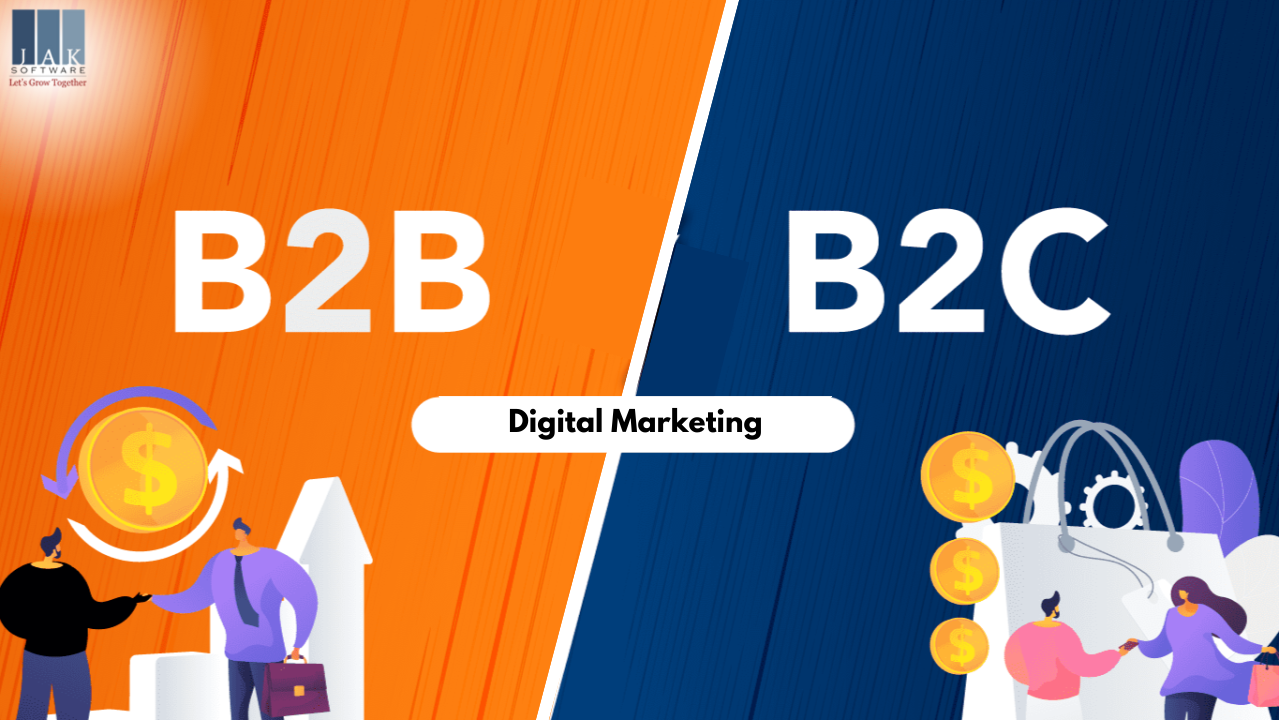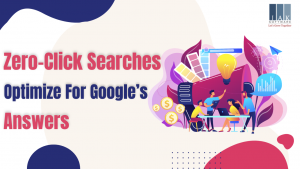In today’s hyper-connected world, digital marketing has become an indispensable tool for B2B (Business-to-Business) and B2C (Business-to-Consumer) companies. As businesses navigate an increasingly competitive landscape, the role of digital marketing has shifted from being optional to being a core driver of success. Below, we delve into why digital marketing is essential for companies across all sectors and how it can propel businesses toward unprecedented growth.
The Evolving Landscape of Consumer Behavior
Consumers—whether individuals or organizations—are spending more time online. With 4.9 billion internet users globally, businesses can no longer afford to ignore the digital arena. Digital platforms have become the primary means of research, communication, and purchasing decisions, making them a critical touchpoint for reaching target audiences.
B2C Consumers Demand Convenience
For B2C businesses, digital platforms like Social media, E-commerce website development, and mobile apps are reshaping how consumers shop. They expect personalized recommendations, fast service, and easy accessibility, all of which can be delivered through targeted digital marketing efforts.
B2B Buying Trends Are Shifting Online
In the B2B sector, 70% of buyers conduct online research before making a purchasing decision. From white papers to case studies, decision-makers look for content that helps them make informed choices. Digital marketing strategies such as content marketing, search engine optimization (SEO), and email campaigns enable B2B companies to present themselves as thought leaders and build trust.
Cost-Effectiveness and ROI
Traditional marketing channels, while still relevant, often demand significant investments with less measurable outcomes. Conversely, digital marketing delivers budget-friendly strategies with accurate targeting and trackable outcomes.
Lower Costs Compared to Traditional Media
Digital marketing strategies like pay-per-click (PPC) advertising and social media marketing allow businesses to reach thousands of potential customers at a fraction of the cost of television or print advertising. Tools such as Google Ads and Facebook Ads offer advanced targeting features, ensuring that every dollar spent delivers maximum impact.
Higher ROI with Measurable Metrics
With tools like Google Analytics, businesses can track key performance indicators (KPIs) such as conversion rates, click-through rates (CTR), and customer acquisition costs (CAC). This enables companies to optimize their campaigns in real-time, ensuring better returns on investment (ROI).
Increased Brand Visibility and Recognition
Building a strong brand presence is crucial for both B2B and B2C companies, and digital marketing offers unparalleled opportunities for visibility.
Search Engine Optimization (SEO)
Ranking high through search engine results pages (SERPs) SEO marketing increases organic traffic and builds credibility. By focusing on high-ranking keywords, creating valuable content, and ensuring a mobile-friendly website, businesses can enhance their online discoverability.
Content Marketing
High-quality content remains the cornerstone of digital marketing. Blogs, videos, webinars, and infographics not only attract traffic but also nurture leads. A well-executed content strategy ensures that businesses remain top-of-mind for their audience.
Personalization and Customer Engagement
Modern consumers expect personalized experiences. Digital marketing enables businesses to customize their campaigns to address the specific needs and preferences of their audience.
Data-Driven Personalization
With tools like customer relationship management (CRM) systems and marketing automation software, companies can analyze user behavior and deliver targeted campaigns in B2B & B2C marketing. For instance:
- B2B: Sending customized email newsletters based on a lead’s industry or business size.
- B2C: Offering personalized discounts based on browsing history or past purchases.
Interactive Marketing Strategies
Techniques such as polls, quizzes, and live Q&A sessions encourage two-way communication. These strategies not only engage customers but also provide valuable insights into their preferences.
Social Media Marketing
social media marketing platforms like LinkedIn, Instagram, and TikTok enable businesses to engage directly with their audience. For B2B companies, LinkedIn serves as a platform for networking and sharing industry-specific insights. Meanwhile, B2C brands use Instagram and TikTok to create engaging content that resonates with younger demographics.
The Role of Emerging Technologies
Emerging technologies such as artificial intelligence (AI), machine learning (ML), and augmented reality (AR) are revolutionizing the digital marketing landscape. Companies that utilize these technologies can secure a distinct advantage in the marketplace.
AI-Powered Insights
AI tools like chatbots enhance customer service by providing instant responses to queries. Additionally, AI-driven analytics tools help businesses identify trends and optimize campaigns for better results.
AR in B2C Marketing
B2C companies are increasingly using AR to create immersive shopping experiences. For example, furniture stores enable customers to see how products would look in their living spaces through AR apps, enhancing interaction and driving sales.
Global Reach with Local Precision
Digital marketing eliminates geographic limitations, allowing businesses to connect with audiences worldwide. At the same time, it allows for precise targeting of local markets.
International Campaigns
By leveraging tools like Google Translate and region-specific ad campaigns, businesses can cater to diverse markets while maintaining a consistent brand voice.
Local SEO
For companies aiming at local clientele, focusing on local SEO optimization is essential. This includes claiming business listings on Google My Business, encouraging customer reviews, and using location-specific keywords.
The Competitive Advantage
Companies that invest in digital marketing gain a significant edge over their competitors. By staying updated with the latest trends and adapting their strategies, businesses can attract and retain customers effectively.
B2B: Building Long-Term Relationships
For B2B companies, digital marketing facilitates account-based marketing (ABM) and lead nurturing, ensuring long-term partnerships and recurring revenue streams.
B2C: Driving Impulse Purchases
B2C companies can use strategies like retargeting ads and flash sales to drive conversions and capitalize on impulse buying behavior.
Conclusion
digital marketing services is no longer a choice but a necessity for both B2B and B2C companies. From enhancing brand visibility to delivering personalized experiences, the potential benefits are immense. By harnessing the potential of digital platforms, companies can go beyond mere survival and flourish in the competitive landscape of today’s market.
In addition, digital marketing provides businesses with unmatched flexibility and growth potential. Unlike traditional marketing channels, digital strategies can be adjusted in real-time to align with shifting consumer preferences or market conditions. This flexibility ensures businesses remain agile and responsive to opportunities.
The integration of emerging technologies such as AI and AR further underscores the transformative potential of digital marketing. These tools empower companies to deliver innovative and engaging experiences that set them apart from competitors.




